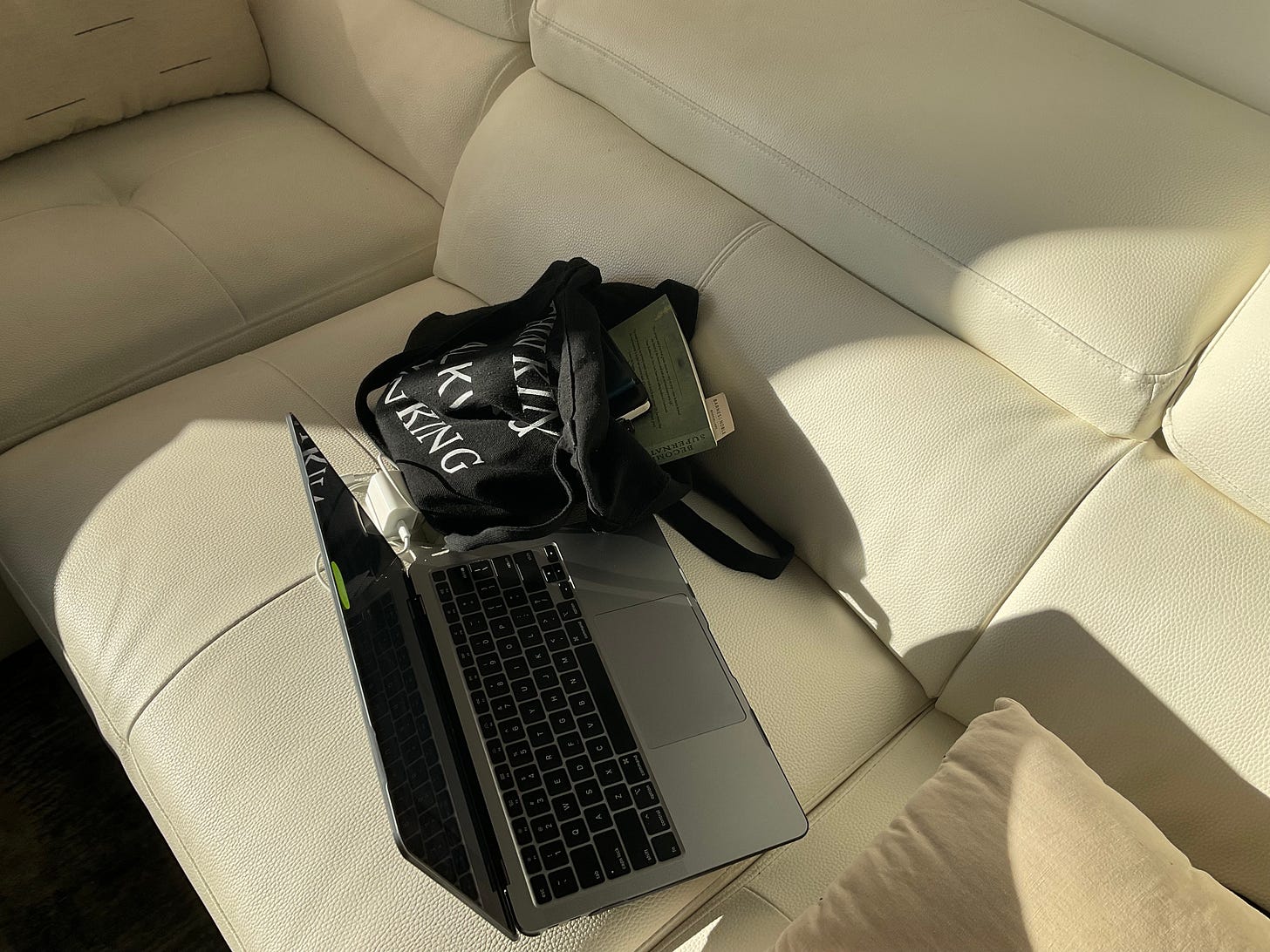On Reading Slowly
This is a story of love.
(with love, from my current perch — where I sit writing this piece)
I think it began in Armenia.
I was reading Elif Shafak’s The Forty Rules of Love, which is my favourite book to this day, and in it, I found some of the most startling and calming wisdom I have ever encountered. All through the guise of Islam and Sufism. And I closed it. And the next day, I could remember that I loved it, but could not recall a single of the Forty Rules.
Now, it is Monday—midnight. My wine glass is full of ginger ale, as it almost always is, and I’ve just finished reading My Year of Rest and Relaxation by Ottessa Moshfegh. I read it as a kind of endurance test; can I finish this book, in the way that the main character completes her drug-fuelled quest? (was that a spoiler? sorry.)
Anyhow, I tend to read books at an alarmingly fast rate. I last timed myself about 5 years ago, and could read about 1 page per minute. I have no idea what my “reading stats” are now, but a recent encounter with Matt D’Avella and Ryan Holiday’s advice for how to remember things better, I’ve decided to change my tune. Now, I agree that reading whether fast or slow is a marvellous way to spend one’s time. Growing up without television, it’s practically all that I did until I was 14 or so. I get so addicted to the story, so entrenched in the potential for growth, so deeply touched by the lives in the narrative, that I often have to force myself to leave where I am sitting to eat, bathe, and go get some fresh air when I’m in one of my reading marathons.
My sister is the same way. She moreso, especially because she can read in cars, and while walking without feeling sick. I’m not so lucky. And I’ve found that while I enjoy the stories immensely as I read them, much like D’Avella, I have a very hard time recalling what I have just read. And I wish this wasn’t the case, because I know for a fact that I have read hundreds of books in my few decades on this planet, and I would very much like to recall as much of the information therein as possible. As such, I think that an attempt at slow reading is what is called for. Not just slow reading, but additional time and effort (where possible) to note and make personal commentary on the material with which I am engaged.
Whether you are a slow or a fast reader, I encourage you to check out D’Avella’s video, and see for yourself whether any of it rings true.
And if you speed-read this piece, I encourage you to go back and try to read it more slowly. Perhaps the practice of doing so with my own pieces may improve my writing.
Time will tell,
-TC


